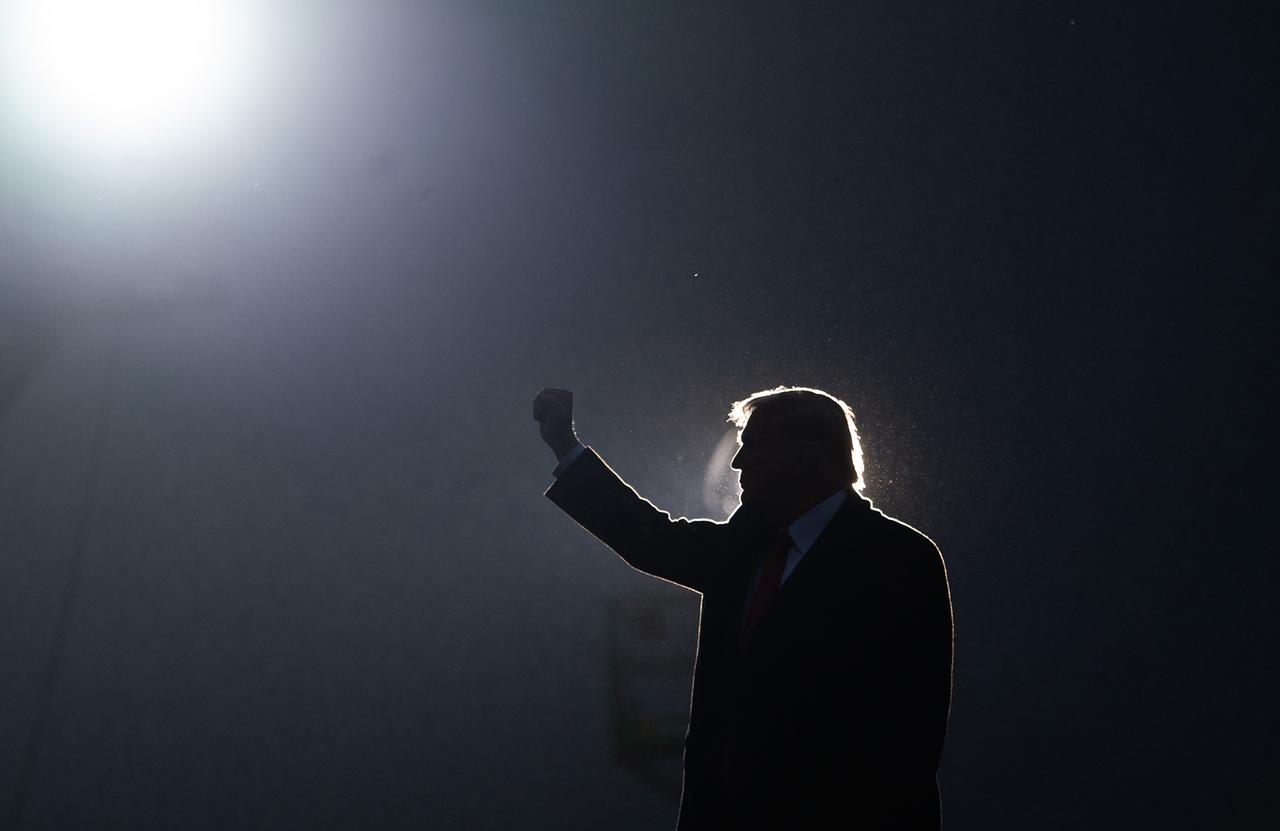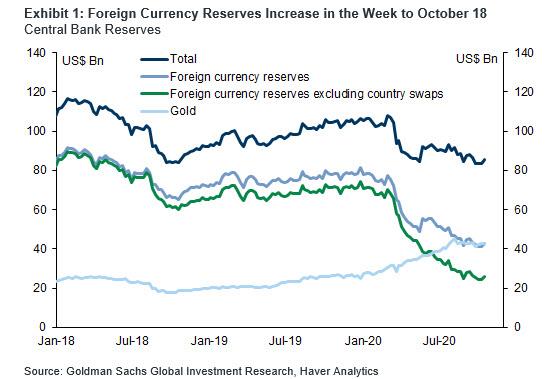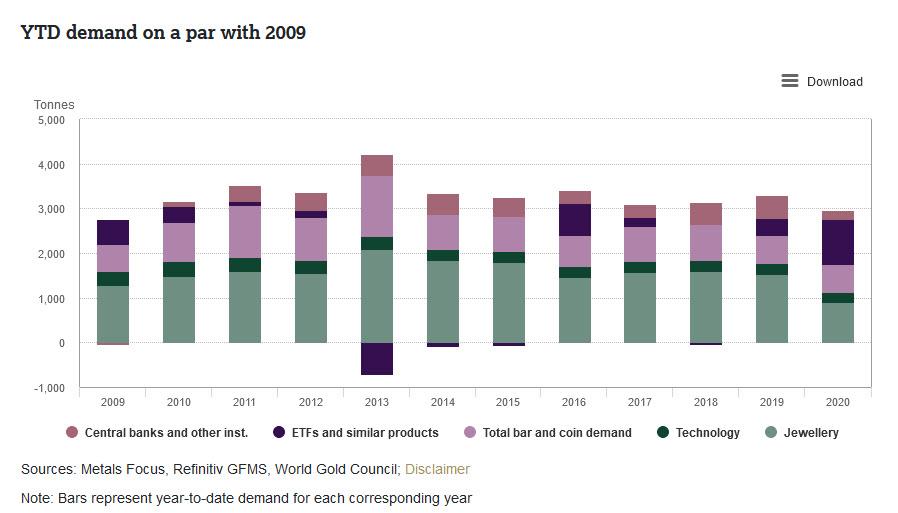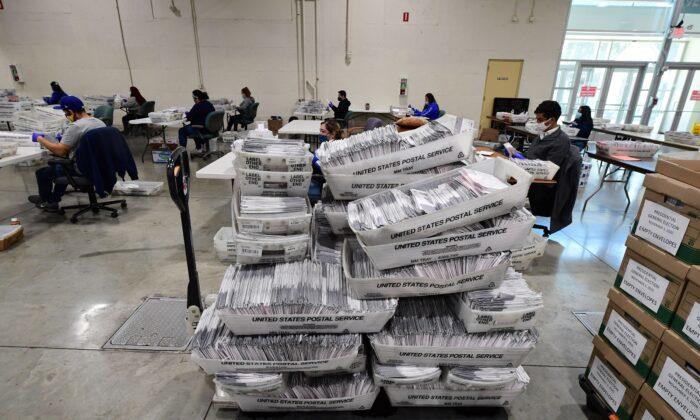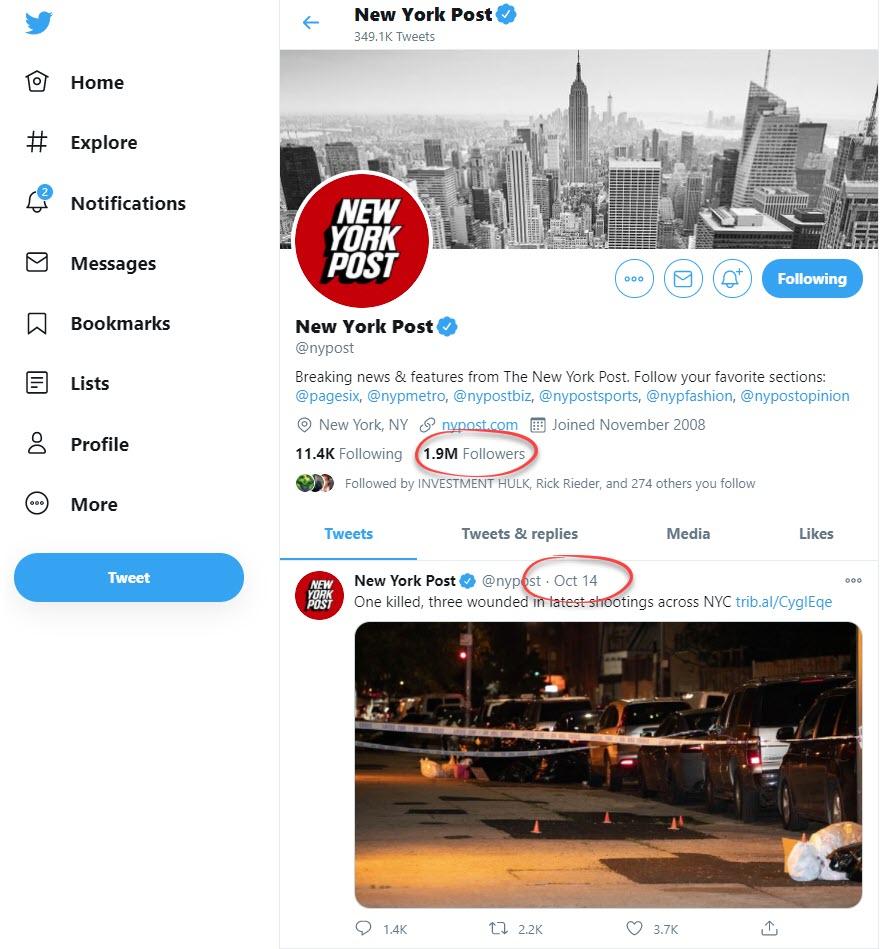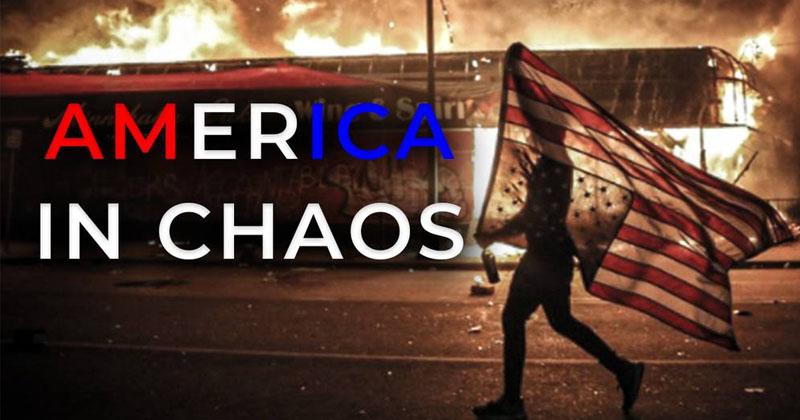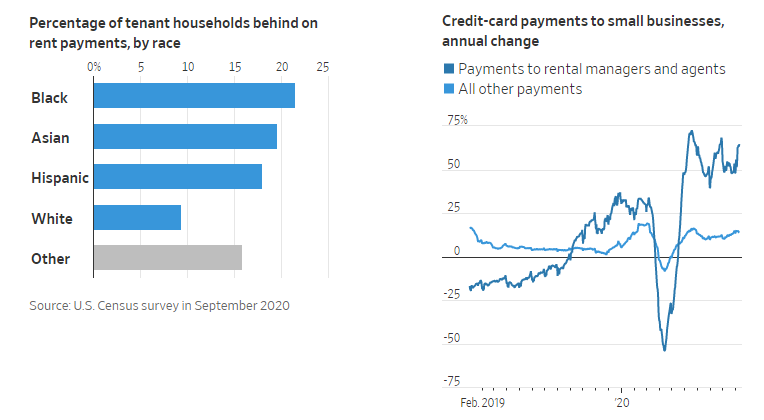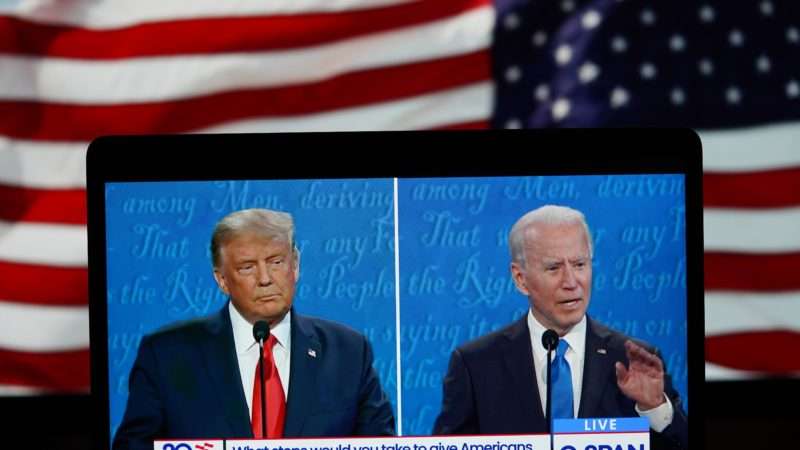Why Victor Davis Hanson Thinks Trump Will Win
Tyler Durden
Fri, 10/30/2020 – 20:20
Authored by Oliver Wyman via TheCritic.co.uk,
To those who see an intellectual case for Donald Trump as a contradiction in terms, Victor Davis Hanson is an unlikely figure.
A senior fellow at Stanford’s Hoover Institution, Dr Hanson was awarded the National Humanities Medal by George W Bush in 2007. He is the author of more than 20 books on classics, military history and more. When he isn’t writing or teaching, he’s managing his family’s farm. Dr Hanson is also a full-throated and unapologetic supporter of the president. Last year, Dr Hanson published The Case for Trump, a coherent and thoughtful argument for an often incoherent and thoughtless president.
Victor Davis Hanson. Image courtesy of the Hoover Institution
With under a week left in the presidential election, Dr Hanson spoke to me over the telephone from his farm in California’s San Joaquin Valley about whether Trump will win, why he supports the president and how the coronavirus has sharpened America’s political and class divides. Below is a lightly edited transcript of our conversation.
How do you see the race right now? Who will win next week?
I think Trump will win the Electoral College. I’m not sure about the popular vote, but the more our experts and pundits reassert that 2016 cannot happen again, the more it seems like it is happening again. And by that I mean, more specifically, all the polls that were discredited in 2016 — the Politico poll and the Reuters poll, Fox or the Wall Street Journal/NBC poll, the mainstream polls in other words — they have Trump losing in the key states just about at the rate that Trump was losing last time. And from what I can tell, they haven’t really altered their methodology. The other polls, the Democracy Institute, the Trafalgar poll, the Zogby poll, the Rasmussen poll, have him very close, if not deadlocked at the national level. And then, in these key swing states, deadlocked or slightly ahead.
And yet, we were told in 2016, that these were not credible polls. They turned out to be almost prescient in their accuracy. So there you have it.
And then what we’re not supposed to do is rely on anecdotal evidence. But when you drive around communities in America — and I’ve been out a lot despite the quarantine — the enthusiasm is all on one side. It’s all Trump. There’s Trump signs, Trump motorcades, huge Trump rallies.
Because the data doesn’t seem logical, people don’t believe it. By that, I mean that African Americans might not vote just 8 per cent, but maybe 12 or 13 per cent for Trump, or Hispanics may not vote 31, but 35 or 36 per cent. Or college students, maybe a million and a half of them in swing states at these huge public universities, the biggest in the world — Ohio State, Michigan, Michigan State, University of Wisconsin, University of Miami, all of them — they’re not in session because of a lockdown. And students are not going to walk to the polls after being registered on campus, with the herd mentality and rah-rah exhortation that is normal. They are home in their basement or with their parents scattered all over. And I just don’t think they’re going to vote in the same numbers or with the same consistency as they did in 2016. I think that’ll benefit Trump as well.
If I accept your assessment of the race for the time being, what about Trump’s message is working?
If we had had this conversation in January, I think his critics would have said he was going to win, because of the booming economy, GDP, low unemployment, some foreign policy achievements.
But after Covid, the lockdown, the recession and the rioting and looting, the Democrats came up with a pretty effective strategy toward him. If I can use the vernacular, he became Donald Trump as Herbert Hoover, Donald Trump as Typhoid Mary, Donald Trump as Bull Connor and he was blamed for all of these problems.
At the same time, they had about a two-to-one edge in money. Most of the nation’s billionaires and big PACs were funding very effective ads against him. Then Joe Biden, once it was determined by his handlers that he had some cognitive issues, was pretty much put in isolation in his basement. He outsourced his campaign to surrogates and the media, who were 93-94 per cent for Biden according to the Shorenstein Center. And then he wasn’t allowed to go out and debate or barnstorm because of fear that he would say something like he did this week, that he was running against George, or that he had a fraud Task Force. He is capable of saying anything at any time. It can be quite embarrassing. So they kind of locked him down and let the news cycle take hold.
Trump hadn’t come up with an effective answer to that. And then three weeks ago, his campaign took a turn for the worse when he got Covid. He wasn’t able to do the rallies, people were predicting he would be in bed with the virus or post-viral fatigue for weeks or months, sort of like Boris Johnson. Then suddenly, with these new therapeutics, new drugs, he just bounced back. Suddenly he was at the rallies. Suddenly they were talking about vaccination. Suddenly he was able to make the argument that while the cases were spiking, they were not as morbid. The mortality rate was going down. GDP was going up. And at the very time that happened, we had the Joe Biden scandals. They are trying to run out the clock on them, and they may or may not be successful. But the result of all that is that he has surged and is now, I think, dead even.
You supported the president four years ago, as I understand it, and you support him in this election, obviously. How do those two cases for Trump differ? How does the 2016 case for Trump compare to the 2020 case for Trump?
The most important thing is that most politicians in the Western world lie. And so when Donald Trump said, “I’m going to build a wall with Mexico, and I’m going to take on China, I’m going to bring jobs back to the deindustrialised Midwest, I’m going to avoid optional military engagements in the Middle East, I’m going to put my foot on the accelerator of gas and oil production, I’m going to get the most conservative judges you can imagine” everybody thought, you know, this is Manhattan real estate talk.
But then when he got in, not only did he start doing that, but the forces arrayed against him. And, I should note, they were bipartisan. I mean, we had, almost immediately, talk of articles of impeachment, and then there was a move to declare him crazy under the 25th amendment, than the Emoluments Clause, then the Logan Act, and then 22 months of the Mueller Russia hoax, and then the impeachment. So it showed you that there was a lot of opposition to him, because he kept his promises.
Now he’s running as an incumbent, Joe Biden is not saying “he didn’t build a wall”, or “I want to put that embassy back in Tel Aviv”, or “I’m going to go back to the Obama position on China”, or “I think those NATO members should pay what they want; they don’t have to meet the 2 per cent commitment”. That’s different. So there is a grudging consensus that whatever you think of him, he’s really kept most of the promises. He has absolutely recalibrated the entire American judiciary with his appointments.
Were you surprised by the intensity of the opposition to Trump?
I’d never seen it before. I’d seen hyper-partisanship. But I’d never seen respected former government officials like Rosa Brooks writing nine days after he was elected that you should either impeach him, declare him crazy or have a military coup to remove him. I’ve never seen retired military officers of the caliber of a General Mattis, or McCaffrey or McRaven say of their commander in chief “the sooner he’s gone, the better”, or “he uses Nazi-like tactics”, or “he’s a Mussolini”. I’ve never seen that level of opposition.
Part of it is because he didn’t play by Marquess of Queensbury rules. When they went after John McCain and said he was senile or that Mitt Romney was a hazer who treated animals terribly, they just took it. And Trump came along and said, “I’m not going to lose nobly. I’m going to win ugly if I have to.” That appealed to his base, but it also won over some of his sceptics, because they were tired of Republicans at the national level not doing as well as they had been doing at the state and local levels, partly because of a failure to take off the gloves and handle the democrats in like kind, blow for blow.
After Trump won in 2016, there was a big debate about what explained support for the president. It was soon framed as cultural grievances versus economic grievances. What do you think of that framing, and how do you explain the rise of the president?
It was, in part, common to the Western world, not just the United States. It was same forces that voted for Brexit, that explained the surprising results in the Australian election as well as some push back in Canada. People who are on the coastal peripheries that had skills or were part of a professional class plugged into global markets — insurance, finance, media, academia, law, high tech — who made enormous amounts of money were exempt from the consequences of their own ideology. So they told people in the interior, whether it was on climate change, identity politics, or on immigration, this is what you’re going to do, and you’re the losers, you didn’t understand the economy. We can Xerox your muscular labour and outsource your fabrication or your farming or whatever. It’s cheaper somewhere else and you’re expendable.
Here in the United States, they became the deplorables, irredeemables, clingers, dregs, the people that Peter Struck in his text called the smelly ones at Walmart. Whatever they were, that group felt that they had done nothing wrong, that they were not racist, and that you had to give a second look at globalisation. They thought that while it was nice that people had eyeglasses in the Amazon, and that you can buy cheap stuff at Target or Walmart, there was a downside to the disruption in traditional life and to marginalisation of nationalism and borders, of a distinct culture and tradition, iconoclasm, all that stuff. They didn’t like it.
And Donald Trump went one step further than other politicians. He looked at the peculiarities of the American electoral system and said, you know, these people are in states that decide the election, and they have not been voting for either Democrat or Republican, they’ve been sitting out or they’re unhappy Republicans or they’re turned off Democrats, but I’m going to get four to six million of them to turnout in Michigan, Wisconsin, Iowa, Pennsylvania, Ohio, Florida, North Carolina. And he did. Now the question is, can he do it again?
Let’s imagine he loses next week. And I know you think that that’s not going happen, but let’s say it does. Where do you think that energy will go?
That’s a very good question. I don’t see that group of people rallying to the left when we don’t really have a Democratic Party. It’s sort of analogous to the pre-Tony Blair Labour Party underneath Kinnock. That’s pretty much where the Democratic Party is now. I don’t see any of those issues — I shouldn’t say I don’t see, I know because I saw them in the primary — winning much support. That’s what elected the supposed moderate Joe Biden. People didn’t want the Green New Deal, they didn’t want reparations and open borders and Medicare for everybody and all that stuff. So I don’t think that’s going to be empowered. They’re going to try to take power, but I don’t think these people will gravitate to them.
They’re going to have to find a Republican candidate that has those signature Trump issues. It should be remembered that 90 per cent of Trump’s agenda was typical Republicanism, but he’s so tweaked it and modified it and adapted it that it got those people out. So somebody like Arkansas senator Tom Cotton, or Kristi Noem, the governor of South Dakota, or another younger person coming up without the baggage of the Bush years, I think, can incorporate Trump’s ideas.
You mentioned the Democratic Party. I’m interested, do you give Biden any credit for not swerving left in the way many of his competitive competitors did during the primary? And do you entertain any possibility that a Biden administration will be moderate in a way that is kind of tolerable to those on the right who are worried about the far-left?
No. None. Zero. None.
Why?
Two reasons. Joe Biden at 77, is not the Joe Biden he was at 67. Every day he says something that is preposterous, and he doesn’t seem fully cognitively aware in a way that a president must be. That’s number one.
And number two, I might disagree slightly with your interpretation of why he was nominated. He failed in in Iowa and New Hampshire, and he was declared a loser. He came in fifth. And so Michael Bloomberg was trotted out as the nice veneer, a centrist that could carry the party. And it turned out he spent a billion dollars to prove to everybody that he was a very unlikeable fellow. Then the Democratic establishment was in a quandary, so they resuscitated Joe Biden, but with the proviso that he would be a vessel that would carry this leftist position. And so it’s worked pretty well, to the degree that he’s not not up and about, but when he makes these rare appearances, he gets caught out. So in the debate, he said we’re gonna end fossil fuels, and I think that will cost him Pennsylvania. He said some things about immigration and amnesties and the wall and things that are not 51 per cent issues.
Metaphorically, he’s like a hot air balloon that the left blew up. And then the carriage of progressivism is attached to it. Because he’s been a 47-year politician, his job was to get this across the finish line without having a Bernie Sanders veneer to it all.
Once he’s done, I think you’ll start to hear rumours form the left and left media (which is a redundancy) that Biden is surprisingly, shockingly befuddled or addled and this is really a concern and maybe we better examine it. If Biden should win, we’ll hear this and we’ll hear, probably in November or December, that the virus is de facto not an issue now. It’s over with, the Biden economy is recovered, there’s no need for quarantine. We’ll hear all that, but I think in a context where Joe Biden knowingly and courageously served his purpose.
If you look at the Democratic Party by House representation or the Senators, there’s no more blue dog moderates. They don’t exist anymore in the House. In the Senate, I mean, Amy Coney Barrett was a very brilliant, charismatic nominee and there wasn’t one Democrat that voted for her. You know, 90 Senators had voted for a pretty radical Sonia Sotomayor, just a decade or so ago. So, no I don’t think he’s going to govern as a centrist at all.
We haven’t talked much about the pandemic. How has it thrown the choice in this election into contrast? How has it framed the difference between the American left and right?
Well, I think it’s been cyclical. At the beginning, when the World Health Organisation said that it wasn’t transmissible, travel bans were not necessary, masks were unnecessary. And Anthony Fauci said go on a cruise, don’t wear a mask. Then that was recalibrated to “This is hyper deadly. This is very bad.” And Trump was confused. So he gave conflicting messages. Then we locked down the country for supposedly two weeks to level the curve. And that took on a life of its own for seven months. I think that really hurt the president because the economy was ruined and the quarantine was not evenly applied. If you wanted to protest the death of George Floyd or professed that you were protesting, all rules of quarantining were dropped. If you went out for a different type of rally, then all of a sudden you were arrested. Or if your business was open, you were arrested. So people lost confidence in the quarantine’s logic and systematic application, the fairness of it.
Now I think it’s starting to be a wash. Half the country is where Sweden is and the other half is where Germany or France is. In other words, half the country believes that with the therapeutics that got Donald Trump back in three days, and with a vaccination on horizon, and new studies coming out of Stanford Medical School showing that the morbidity under 70, not 60, may be as low as two to three per thousand, you just simply can’t justify destroying an economy.
Let me add a final caveat. This is a class issue now. I think here in the Western world, the people who are really suffering economically, from suicide, spouse or family abuse, missed cheques, missed surgeries, missed medications, are the lower and lower-middle class. And they’ve been hurt terribly. We don’t know how many have died from it or have had their lives ruined. But Trump is suggesting that the reaction to the virus at this point has been more lethal than the virus itself.
But does the net effect of the virus on the race hurt Trump? Or do you think that if it’s clarified these things in the way you described? Has it helped him at all?
It hurt Trump terribly. And then, three weeks ago, when he got the virus, he came up with a brilliant exegesis that people you can’t run a country from your basement, and that there were 100 million Americans out there growing food, delivering fuel, making stuff, and there’s an elite that stay safely in their basement and who had the ability and the opportunity to earn cash on Zoom or Skype. And he wasn’t gonna be part of that. He went out and said, I risked my own health to be with you guys. I took these experimental drugs to be with you guys. I’m with you guys. You’ve got to take risks. This is a great country. And that kind of worked, at least for his base. And especially with Biden secluded. So I think now what was a great detriment to his candidacy has been sort of neutralised.
People think, you know what? China gave us the virus, nobody could have cured it. Look at the deaths per million ratios in Spain or Italy or France or the UK. Except for Germany, they’re pretty much comparable, and in some cases, like Belgium, worse than the United States. So I think that’s where we are.
via ZeroHedge News https://ift.tt/34GQJp1 Tyler Durden

